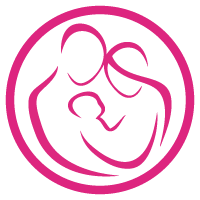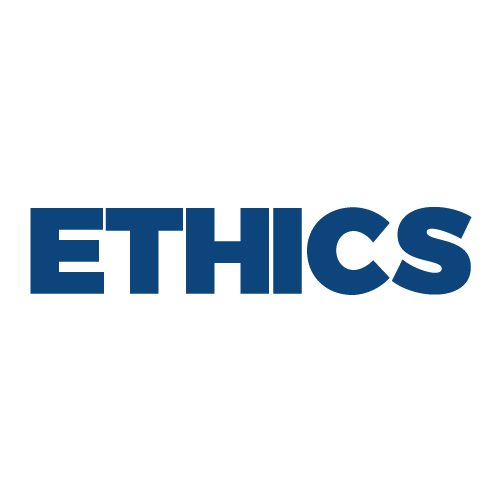 IBCLC Detailed Content Outline: Clinical Skills Focused CERPs - Section VII
IBCLC Detailed Content Outline: Clinical Skills Focused CERPs - Section VII
Access CERPs on Clinical Skills for the IBCLC Detailed Content Outline recertification requirements. Enjoy convenient on-demand viewing of the latest Clinical Skills focused IBCLC CERPs at your own pace.


Sejal is an International Board Certified Lactation Consultant (IBCLC) in private practice and an infant massage educator in Hillsboro, Oregon, USA. She combines her professional expertise with her personal instincts as a mother and a supportive team member.
She holds a Bachelors in Microbiology and Clinical Laboratory Science.
She also brings with her the following comprehensive toolkit: Certified Educator of Infant Massage, Formerly Certified in skin-to-skin care for full term infants from the United States Institute of Kangaroo Care Certified Provider of Innate Postpartum Care.
She has presented nationally and internationally for GOLD lactation, ILCA, community colleges, local lactation organizations.
As a lactation consultant, she believes that every individual needs to be educated about breast health, optimal infant feeding and how breastfeeding support is a basic human right and can impact world health globally.
She strives to help each family by continuing to learn all she can about breast health, breastfeeding ecology, breastfeeding movement and parent-infant connection using the neurobiological and infant mental health lens.
When she’s not with her clients, you can find her at home in Hillsboro, Oregon, USA, listening to bollywood music, hanging out with friends and spending time with her family.
Topic: Calm & Regulated: Rethinking Our Approach to Latch and Positioning - [View Abstract]
Topic: Teaching Infant Facial Massage to Parents to Support a Functional Latch - [View Abstract]
Every interaction in lactation care with clients must set the foundation for creating an oxytocic environment. Improving client self-efficacy must be a priority for every lactation professional who works with the dyad. This presentation will dive deeper into the various factors that include not just latching and positioning but also brings attention to regulating the nervous system of the parent and baby. The presence of a lactation support professional needs to invite a neurophysiological encounter of safety in the parent and infant. This allows them to feel relaxed, unfurled, and present in the process of feeding and beyond. We will review clinical case studies, videos, photos and curious compassion for better client outcomes. Lactation professionals will be able to incorporate the ideas from this presentation into their clinical practice. They will be able to encourage client self-reliance that lasts beyond the consultation. This presentation can be used as a guide for providing a neurophysiologically inclusive feeding plan and bridging the gap between initiation and duration of breastfeeding.

View Details / Enroll


Lesley Everest has been practising as a birth, postpartum, and end-of-life doula in Montreal over the last 26 years. She is the founder of MotherWit Doula Care and MotherWit Doula Training. Lesley's professional background in many forms of somatic/emotional support therapies and inter-spiritual ministry informs her work as a teacher of human resilience , as do the births and parenting of her own four kids, and her experience of healing from cancer. She has learned over the years that a good birth and early parenting experience is less about goals being met and more about feeling safe and respected. Lesley believes that the journey into family-hood matters for all members, serving as a transformational event that has the power to shape early parenting and the next generations. Lesley's diplomatic and collaborative nature has made her a sought after speaker in the North American birth and parenting conference circuits, as well as a facilitator of workshops geared towards soft skills building for medical care providers. Lesley is resourced by long walks in nature, late night dancing with friends to ‘80’s music, and visits to the spa.
The CALM Communication workshop is designed to nourish practitioner skills that can support the nervous system co-regulation of the breast/chestfeeding parent/baby dyad, thereby enhancing the efficacy of information exchange at a vulnerable time.
When a parent is experiencing breast or chestfeeding difficulties, it can be emotionally distressing. This distress can be exacerbated by a history of trauma, a challenging birth/NICU experience, or a perinatal mood or anxiety disorder. Babies and their parent/s are learning contingent communication with each other, often in spite of uncomfortable challenges.
In the time lactation professionals spend with a new family, they have the opportunity to provide a stabilizing presence that may create reparative experiences for some of the stress-based breaches in the vital attachment mechanisms babies need to develop with their parent/s for optimal, life long health.
The art of information sharing is not only about the skilled assessments professionals make and the work done with infant feeding challenges, but also about how to create safe space for a client’s/patient’s truth to unfold in a supportive way.

View Details / Enroll
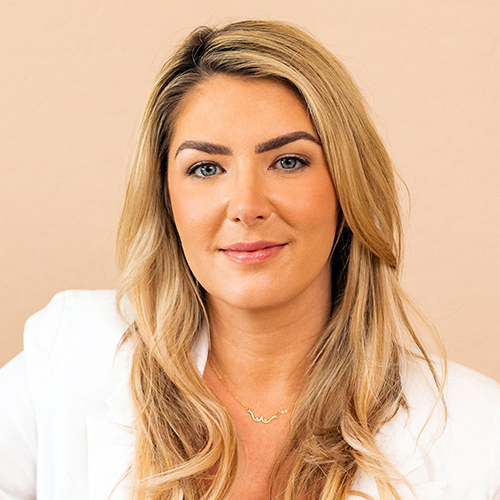

Jacqueline Kincer is the founder of Holistic Lactation where she runs a busy practice, manufacturers herbal supplements for lactation, and supports breastfeeding families worldwide. She's also the host of the podcast Breastfeeding Talk: Milk. Mindset. Motherhood. and creator of the online breastfeeding community, The Nurture Collective. Jacqueline's passion has been to create functional breastfeeding outcomes and expand access to lactation knowledge across the globe.
Topic: Inside the Infant Mouth: Oral Assessment & Function - [View Abstract]
Topic: Tongue Tied Untied: Creating Functional Breastfeeding Outcomes - [View Abstract]
Developing a step-by-step care plan is arguably the most important part of patient care. Without it, necessary treatments may be neglected. As lactation providers, it is our role to set proper expectations for our clients, as well as measure clinical improvement and patient outcomes. When working with infants that struggle with sucking or other oral function issues, there is a process and a timeline we can put together that will guide the care we are giving. In this presentation you will learn how to provide guidance to your clients as you help them work through their infant’s oral function challenges.

View Details / Enroll
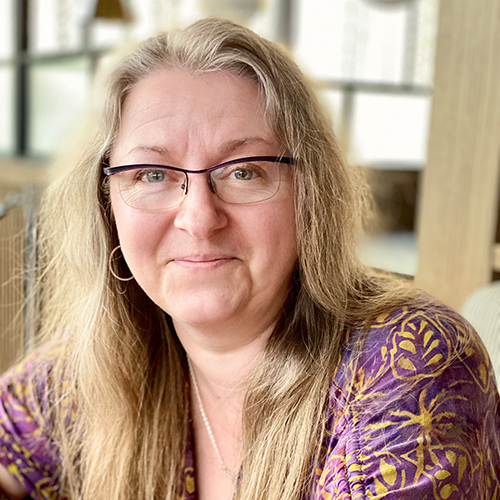
Care Plan Development for Weight Concerns in the Breastfed Infant: A Family Centred Approach

Shel works part time for the NHS in northwest England, and has four adolescents.
In addition to this, she runs a small private IBCLC practice specialising in the unsettled baby, those with faltering weight and those who are formula fed, and also holds a variety of consultant and trustee roles in various national and international organisations for advocacy and education around infant feeding; these include being Clinical Director for the breastfeeding support app AnyaHealth, being co-chair of Nursing Matters, an advocacy organisation for the breastfed infant, and being vice-chair of the UK Association for Milk Banking.
Shel has been on the development committee for 3 NICE guidelines including one on Faltering Growth, has co-authored 3 Cochrane systematic reviews, and written a book “Why Infant Formula Feeding Matters” (2022). In 2021 Shel began work towards a PhD in further understanding how best to support families with unsettled babies in universal services, which she conducts part time alongside her other commitments.
She teaches in person and online, both in her NHS role and in the consultant roles, and thoroughly enjoys sharing the knowledge she has acquired to improve the experience of families everywhere.
Understanding how to develop effective and supportive evidence-based care plans for babies whose weight and/or growth is faltering, is absolutely key to the toolkit of those who are working with breastfeeding babies. Find out more in this presentation.

View Details / Enroll
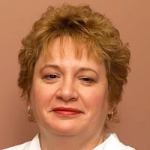
Caring for the Caregiver: Supporting Optimal Mental Health for NICU Staff

Cheryl has been a practicing educational psychologist for 37 years. She has spent the last 34 years of her career providing psychological, neurodevelopmental and infant mental health services in neonatal intensive care units and developmental follow-up clinics. Cheryl currently is working with NICUs to provide staff professional development and self-care education. This work nurtures the NICU professional team so they can nurture and support infants and their families. Cheryl is the National Perinatal Association’s Director of Development and Outreach. Cheryl is a member of the World Association for Infant Mental Health, The Pennsylvania Association for Infant Mental Health. She advocates for families with substance use issues during the perinatal period.Cheryl’s passion is helping families and staff to give optimal care to infants and young children. This care provides the infant or child with the foundation they need to live full, rich and healthy lives.
The presentation will focus on the impact of NICU work on the mental health of the staff, how to care for one’s self and co-workers and how to recognize mental health issues. Specifically, self-care issues around sleep, nutrition, exercise and attitude will be discussed. Identifying the signs of compassion fatigue, burnout and posttraumatic stress disorder and how to treat them will complete the presentation.
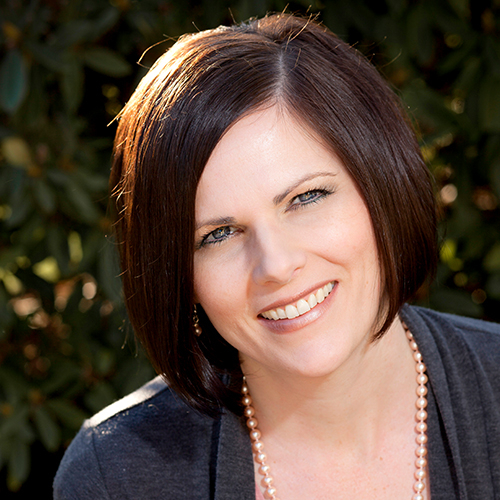
Case Studies of Missed Tongue Ties and Subsequent Consequences

As a little girl, Melanie had the opportunity to watch her OBGYN dad deliver babies and it was such an incredible process to be a part of, she knew she wanted to help babies when she grew up. She received her bachelor’s degree in Family Science from Brigham Young University and worked in adoption until she had her first of six children, which included twins, all of which she was able to exclusively breastfeed. She struggled with postpartum depression which has helped her to be all the more compassionate towards the mothers she works with. Once all 6 children were in school, she became a certified postpartum doula and focused on guiding families mainly with multiples. Given her personal experience, she felt called to serve breastfeeding mothers, so she went back to school to become an IBCLC. She has a passion for helping breastfeeding dyads and also loves educating others about the importance of treating ties. She feels very blessed to have trained with some of the top in the tongue tie field and hopes to continue to spread the word to help increase breastfeeding success.
Improve your investigation skills as we walk through case studies of infants with tongue ties that were initially missed and the subsequent consequences. We will then review once the ties were found how a frenectomy with complete release improved or completely resolved their symptoms. We will examine studies that involve infants with Down syndrome, G tube, NG tubes, and failure to thrive. Learners will be empowered to assess with more accuracy by relying on their knowledge of symptoms and function in addition to standard anatomical assessments. This will improve outcomes for breastfeeding dyads allowing more tongue-ties to be found earlier on.
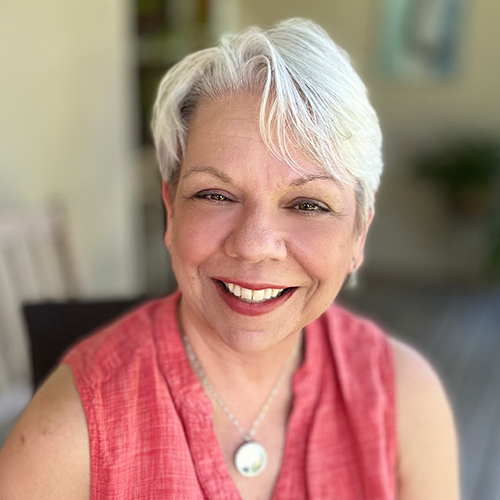

Mary Ryngaert is a Pediatric Nurse Practitioner since 1987 and an International Board-Certified Lactation Consultant since 2000. She received her MSN in the Primary Care of Children at Catholic University in Washington, DC. In her clinic at the University of Florida, she sees families for breastfeeding issues for the duration of the breastfeeding journey and provides education for pediatric residents. She is active in the local breastfeeding coalition and serves as a consultant/coordinator for the hospital Baby Friendly program. She has a special interest in supporting the development of peer counselors, especially women of color, to provide breastfeeding support within the community. She served as the Chair for the National Association of Pediatric Nurse Practitioners (NAPNAP) Breastfeeding Special Interest Group for six years and is a delegate to the US Breastfeeding Committee for NAPNAP . She was a co-author for the 2018 update to the NAPNAP Position Statement on Breastfeeding.

View Details / Enroll
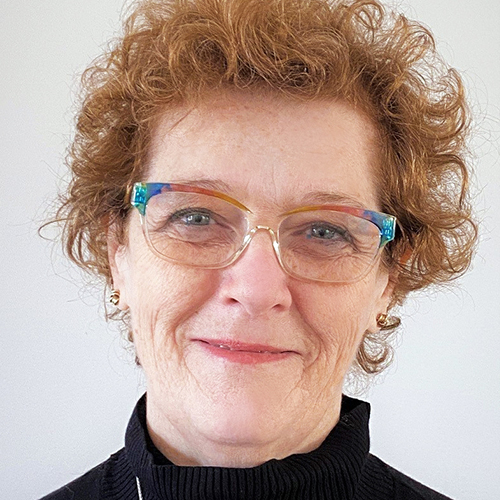

Kathy O'Grady Venter is a registered nurse and retired midwife. She has been an International Board Certified Lactation Consultant (IBCLC) since 1990.
Kathy is a WHO|UNICEF trained BFHI Assessor and Trainer (1991) through IBFAN Africa and currently she is a CoChair of the BFI assessment committee of the Breastfeeding Committee for Canada (BCC), BFI Lead Assessor – BCC Baby Friendly Initiative (BFI) Assessment Committee, Lactation consultant Sunnybrook Health Sciences Centre in Toronto and Breastfeeding educator and BFI consultant.
In the past, Kathy has been Chair for the BCC, Chair of the BFI assessment/education committee of the Baby Friendly Initiative Ontario and the recipient of the Canadian Lactation Consult Association Award for Clinical Excellence.
Approaching clinical care in an ethical manner is a core component of providing care as an IBCLC. Sometimes however, it can be hard to figure out what the ethical response is during everyday practice. Through the lens of clinical scenarios, this presentation encourages delegates to think critically about ethical practice and raises awareness of potential inconsistencies in care and subtle ethical issues which are sometimes overlooked. Learn more about your ethical responsibilities and ways to manage ethical dilemmas in clinical practice.

Check your “Blind” Spot, The Crisis We Are Not Talking About: Transforming Color Blindness to Racial Equity

Felisha Floyd, BS, CLC, IBCLC is currently Lactation Coordinator for Hospital Corporations of America system in Florida. She also offers infant feeding support, mentorship, and education to her local community via her private practice, Beyond Breastfeeding. Felisha is the founder of Our Brown Baby, a community based breastfeeding support group, which serves to provide specialized culturally sensitive breastfeeding support to families of color. In addition to these roles, Felisha is one of the founding mothers and current President of the non-profit The National Association of Professional and Peer Lactation Supporters of Color, affectionately known as "NAPPLSC". She is also a Center for Social Inclusion First Food Equity Cohort member. Previously, she worked as a Women, Infants, and Children (WIC) Breastfeeding Peer Counselor and Breastfeeding Coordinator.
Fueled by her professional and personal passions to ensure that all mothers have access to quality breastfeeding support and resources, she has fervently pledged to reduce breastfeeding disparities in the African American community. To this end, she continually makes efforts to help increase breastfeeding rates in the African American community by unapologetically fighting that which contributes to racial health disparities. Fearlessly obsessive, she is affectionately known as the social media guru "Blactavist!" (Black Lactation Activist). This online community consists of approximately 38,000 supporters on Twitter, Facebook and Instagram, and is dedicated to empowering African American families to breastfeed.
Felisha is a national leader, an experienced trainer and speaker, and a consultant. Through her aforementioned roles, she has provided training programs across the US on topics of clinical breastfeeding, racial equity, first food justice, mentorship, power of collective impact and more. Her previous experience includes national trainings for WIC and professional consultancies for WIC Loving Support Program and the Boston Medical College's Communities and Hospitals Advancing Maternity Practices grant funded program.
Dedicated to improving the level and diversity of lactation support nationally, Felisha trains and mentors aspiring lactation consultants through her private practice. She is the co-author of Clinical Internships for the Next Generation of IBCLCs, an article featured in The Journal of Human Lactation. Felisha also serves with high honor as a member of the Global Board of Directors for Mom2Mom Global, the Advocacy Chair for the State of Florida Breastfeeding Coalition, Secretary of the Board of Directors for the United States Breastfeeding Committee (USBC). She has been honored as a recipient of the Inaugural Concrete Rose Award by Reaching Our Sisters Everywhere and recognized by USBC with the Legacy Award.
We deepen understanding of false conceptual assumptions that define racial equity by critiquing standards of organizational operations. Strengthening awareness to lactation providers by defining and determining key terms which identifies structural racism and reduces superficial outcomes. By alternating racial equity from a “hot topic” to systemic revolution to deconstruct barriers by challenging these assumptions by concepts. Identifying standards that ensure transformation and shift gears from idealist views on racial equity to strategies to promote impactful solutions. Reevaluating promises to actions which Increases understanding of racial equity through policies, practices and procedures. Empowering audience to determine their baseline and understanding of racial equity to build compacity to their ability to morph from ally to accomplice. Giving guidelines, theories and concepts to build an organizational framework to develop and implement plans to incorporate into practices. Despite a growing interest to being sympathetic to racial equity efforts, this learning environment will improve understanding of systems of racism which impact health outcomes. Giving the learners the ability to examining concrete approaches to advancing racial equity.

View Details / Enroll

View Details / Enroll
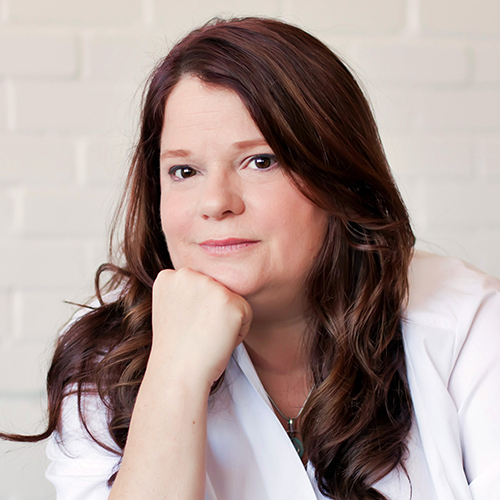
Clinical Assessment and Management of Low Milk Production

Barbara D. Robertson, IBCLC, has been involved in education for over 34 years. She received a Bachelor’s degree in Elementary Education in 1988 and her Master’s in Education in 1995. Barbara left teaching elementary students in 1995 to raise her two children. Barbara is now the Director of The Breastfeeding Center of Ann Arbor and of the brand new business LactaLearning.
The Breastfeeding Center of Ann Arbor will still continue to serve breast/chestfeeding families and now LactaLearning will be dedicated to all of Barbara’s professional lactation trainings. Barbara has developed two 95 hour professional lactation training, a group training and a completely self study training with Nancy Mohrbacher. Barbara’s idea of creating professional book groups has exploded with her hosting Making More Milk with Lisa Marasco, Supporting Sucking Skills with Cathy Watson Genna, Breastfeeding Answers, 2nd Edition with Nancy Mohrbacher, and new for the fall, Safe Infant Sleep with Dr. James McKenna. Barbara will be hosting a one day online conference in the fall with Lisa Marasco and Cathy Watson Genna using all of her tech savvy skills to make this a one of a kind experience. Barbara is also a speaker for hire on a wide variety of topics including Motivational Interviewing. Barbara volunteered for the United States Lactation Consultation Association as the Director of Professional Development for 4.5 years.
She just retired as Associate Editor for Clinical Lactation, a journal she helped create for USLCA. Barbara has free podcasts, a blog, and Youtube videos which can all be found on her websites lactalearning.com and bfcaa.com. She has written many articles as well. She loves working with parents and babies, helping them with breast/chestfeeding problems in whatever way she can.
Topic: Breastfeeding: Baby’s First Milestone - [View Abstract]
Topic: Clinical Assessment and Management of Low Milk Production - [View Abstract]
Topic: Deconstructing Online Messaging: Ethical Considerations - [View Abstract]
Topic: Milk Sharing and Milk Banking: Building Knowledge for Better Outcomes - [View Abstract]
Topic: The Baby's Not Gaining Weight! Now What? - [View Abstract]
Topic: The Great Nipple Shield Debate - [View Abstract]






